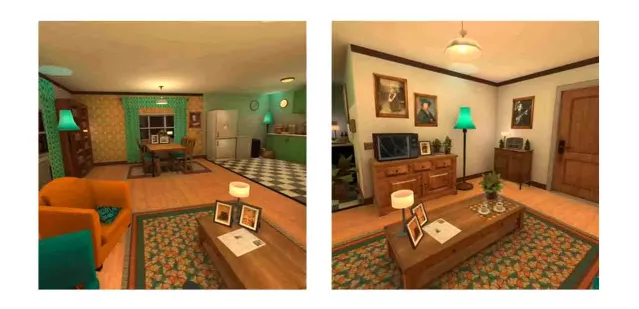
Lars wrote his research thesis for the Master of Digital Innovation in Care and Welfare in close collaboration with Stichting Sociaal Goud (Social Gold Foundation), which is committed to the well-being of the elderly. He chose loneliness as his theme for an obvious reason. Lars: “I used to work a lot in elderly care and I have always had an affinity with elderly people. Loneliness among this target group is a major social problem. It’s terrible that people are trapped at home, while the rest of society appears to be oblivious to this issue." For his research, Lars looked for different ways to tackle this loneliness, involving his target group in the search. So it was not for the lonely, but with the lonely. To truly understand his target group, Lars spent several days at the homes of people experiencing loneliness. “It was a harrowing experience to spend an entire day in a house with nothing to do, no interesting programmes on TV and no social contacts to fall back on, while the clock slowly tick-tocked the hours away.”
From positive memories to new life goals
Lars' research is focused on translating positive memories into new, meaningful goals in life. The next step is to give the elderly direction in achieving those goals. Lars cites a striking example from his research. “One elderly gentleman expressed the wish to play guitar again. As soon as he picked up the guitar and started playing for the first time in years, he visibly pepped up. So together we took steps to get in touch with a band for him to play in. We found one and he has since performed several times in front of an audience." Lars is proud that every step in his research has been taken together with the target group. “The elderly really felt a sense of ownership of the products we developed. As an example, we created a virtual reality living room in collaboration with local serious game developer 8D-games, based on a model designed by six lonely, elderly people.”
Design Based Research
Lars conducted his research along the lines of the Design Based Research (DBR) method, which centres on devising solutions to problems, for which the researcher designs several prototypes. Practical tests determine whether these prototypes are effective. It is important that the end users, who in Lars' case are the lonely elderly, play a leading role in the design process. Lars: “The purpose of my research was not to solve loneliness, but to gain new insights through co-creation. Take the virtual living room, for example. It was found by some to be too generic and by others to be only too familiar. As a result, it did not help very much to recollect old memories. It was a difficult decision, but in the end we chose not to continue with this concept. And that’s something I am also really proud of - that we dared to make choices like that." Making these kinds of radical changes is called kill your darlings in DBR. “It is important not to put all your eggs in one basket. Instead, by designing multiple prototypes, you narrow the gap between the problem and the projected result. Together we have come up with an approach that the participants in the project fully support. An approach in which meaning and a meaningful life are pivotal."
From preparatory vocational education (VMBO) to gaining a first
Winning the Van Welderen-Rengers award means a lot to Lars: “I started at preparatory vocational education level. I don't think anyone ever expected that I would eventually obtain a Masters degree with Distinction." The award ceremony itself was also a very special moment for Lars and his family. “That magnificent building and all those important people! It’s something I will never forget. And it was an extra special event for my grandmother, because she was born here in Oranjewoud.”
Lars now has his master's degree in his pocket and is a lecturer and researcher at NHL Stenden. He also remains involved in the Social Gold Foundation and is committed to a thorough follow-up to his research. As to his own career in education and research, Lars has a clear vision: "I hope I can come up with many more meaningful things in cooperation with others!"
Other winners
Another award winner is Sharon Cornelissen, a Communication & Multimedia Design student at NHL Stenden. She won the award for her research into the future of the Leeuwarder Courant. Her research describes how this newspaper can use digital innovations to develop into an indispensable news source for the Frisian population. For the first time this year a duo was granted an award, namely students Rutger Diertens and Remco Ploeg of Van Hall Larenstein who won the award with their research into the wooded banks in the Noardlike Fryske Wâlden.
Van Welderen Rengers Fund
Every year the Van Welderen Rengers Fund grants thesis awards to the best graduation projects conducted in the three Frisian universities of applied sciences. With the thesis award, the Fund’s board aims to encourage university of applied sciences students to contribute to economic prosperity in Friesland. Baron Th. van Welderen Rengers (1867-1945) was, among other things, the founder of the Cooperative Advance and Savings Bank Trynwâlden in the town of Oenkerk. This bank later merged with the Friesland Bank. The baron bequeathed his estate to a foundation: the Van Welderen Rengers Fund.
The theses were assessed this year by an expert jury consisting of Herman Blom, research professor at NHL Stenden University of Applied Sciences, Jan van der Valk, member of the Applied Research Center Animals and Business at Van Hall Larenstein and Job van 't Veer, lecturer in Digital Innovation Healthcare and Well-being at NHL Stenden University.



